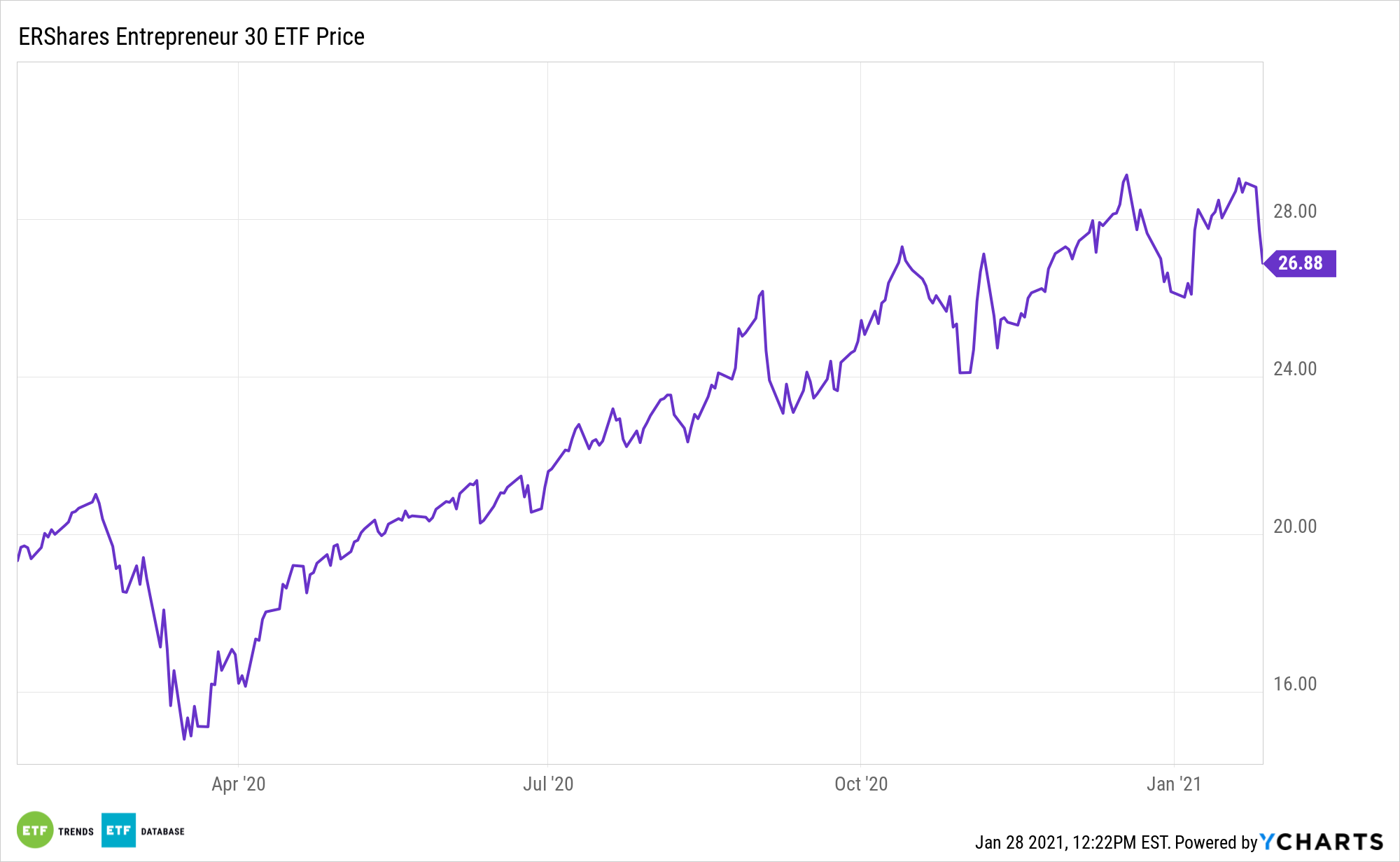The Entrepreneur 30 Fund (ENTR) offers a unique, diversified approach to factor investing, and while it’s not a dedicated technology fund, its tech exposure remains meaningful.
The Entrepreneur 30 Fund tries to reflect the performance of the Entrepreneur 30 Index, which is comprised of 30 U.S. companies with the highest market capitalizations and composite scores based on six criteria referred to as entrepreneurial standards. ENTR primarily invests in US Large Cap companies that meet the thresholds embedded in their proprietary Entrepreneur Factor (EF).
Market observers have argued that tech is poised to thrive again this year. That could be constructive for ENTR.
“If part of the thesis for further stock gains is massive central bank liquidity, tech should benefit from this trend, particularly if volatility continues to fall,” according to BlackRock. “Since 2008 tech has generally outperformed when financial conditions are improving. The average outperformance is approximately 30-35 basis points (bps) a month. In months when volatility, measured by the VIX Index, is falling, average outperformance doubles. Why? Because long-duration assets, i.e. companies where cash flows are in the more distant future, benefit when financial conditions are easy and rates exceptionally low.”

ENTR Taps Continuing Trends, and Adds a Few of Its Own
The growth style may be gaining momentum as investors turn to upbeat economic and earnings data, leading many to adopt a risk-on attitude. Since growth stocks show high multiples, investors may expect that the companies will sustain a high growth rate.
ENTR also includes sophisticated screens to weed out undesirable companies. The factors screened include management, which requires set factors regarding a company’s management, such as the turnover among the top five executives within a company compared to other companies in the broader universe. A profitability screen requires a company to meet predetermined criteria regarding net income over a static threshold to be included, including the company’s net income as compared to predetermined benchmarks.
“The pandemic accelerated several existing trends. As a result, many habits acquired during the pandemic are unlikely to fade,” notes BlackRock. “A good example of this is online shopping. Looking at domestic credit card data reveals an interesting pattern. As you would have expected, the share of spending going to online retailers spiked early in the pandemic. Less obvious was the staying power of this trend. Even as lockdowns eased, online retailer’s wallet share remained elevated relative to the pre-pandemic norm. In other words, even as consumer mobility returned, many households came to appreciate the convenience of services such as online grocery delivery.”
Finally, the consumer side of tech looks compelling for investors.
“Household tech spending increased by more than $100 billion, or 25%, in the six months between May and November. While some of the end-of-year bump was a function of early holiday spending, the trend is clear and has been in place for some time,” finishes BlackRock.
For more on entrepreneurial strategies, visit our Entrepreneur ETF Channel.
The opinions and forecasts expressed herein are solely those of Tom Lydon, and may not actually come to pass. Information on this site should not be used or construed as an offer to sell, a solicitation of an offer to buy, or a recommendation for any product.

